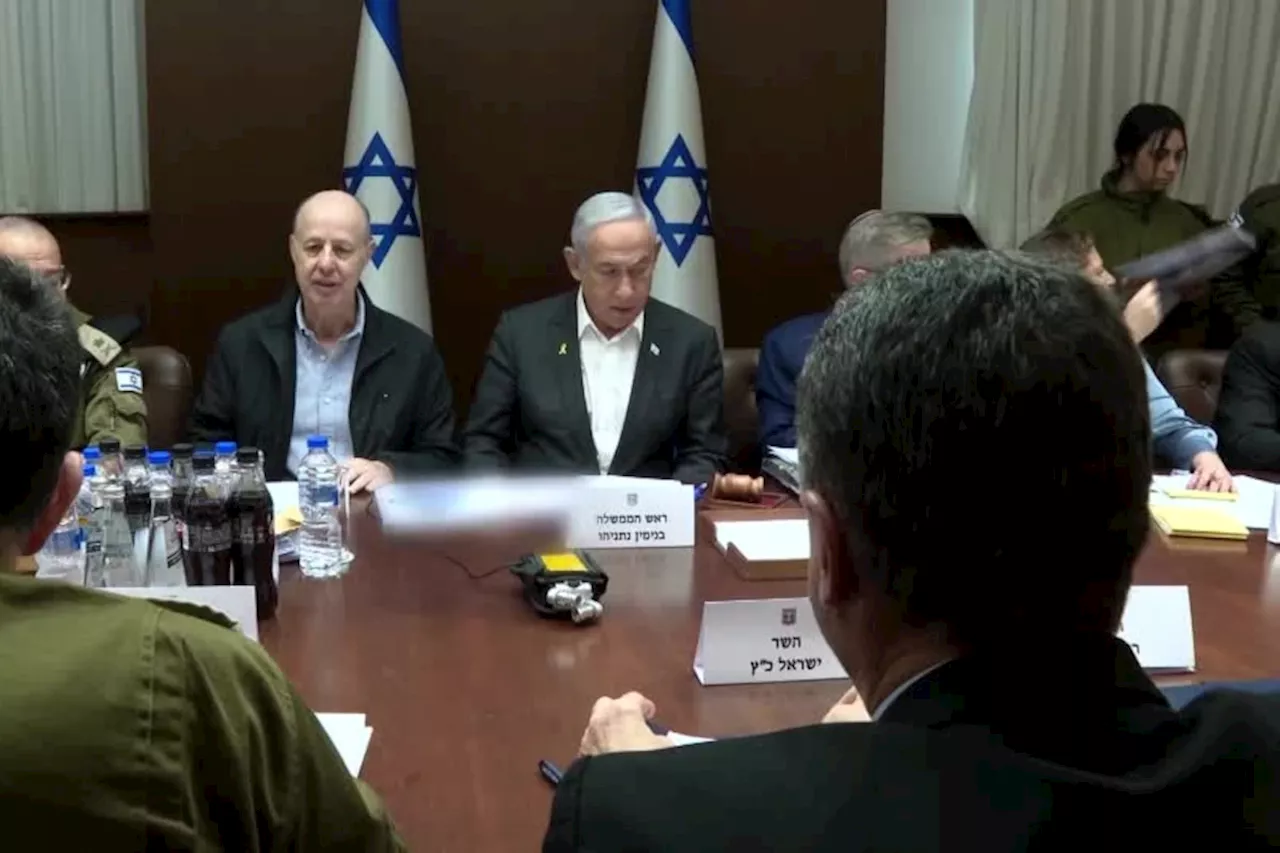After a grueling 15-month war, Israel and Hamas have reached a ceasefire agreement, marking a significant step towards ending the deadliest conflict in their history. The deal, brokered by Qatar and the United States, includes the release of dozens of hostages held by Hamas and a gradual withdrawal of Israeli forces from Gaza. However, challenges remain in finalizing the terms and ensuring a lasting peace.
Israel 's security Cabinet recommended the ceasefire deal's approval earlier in the day, and the full Cabinet was expected to approve the ceasefire, which could start as soon as Sunday. Israel 's Cabinet approved a deal early Saturday for a ceasefire in Gaza that would release dozens of hostages held there and pause the 15-month war with Hamas , bringing the sides a step closer to ending their deadliest and most destructive fighting ever. The government announced the approval after 1 a.m.
Jerusalem time and confirmed the ceasefire will go into effect Sunday. The hours-long meeting of the full Cabinet went well past the beginning of the Jewish Sabbath, in a reflection of the moment’s importance. In line with Jewish law, the Israeli government usually halts all business for the Sabbath except in emergency cases of life or death. Mediators Qatar and the U.S. announced the ceasefire Wednesday, but the deal was in limbo for more than a day as Prime Minister Benjamin Netanyahu insisted there were last-minute complications that he blamed on the Hamas militant group. Key questions remain about the ceasefire – the second achieved during the war – including the names of the 33 hostages to be released during the six-week first phase of the ceasefire and who among them is still alive. Netanyahu instructed a special task force to prepare to receive the hostages returning from Gaza and said their families were informed a deal had been reached. Hundreds of Palestinian detainees are to be released as well. Israel’s justice ministry published a list of 95 Palestinian prisoners to be freed in the deal’s first phase and said the release will not begin before 4 p.m. local time Sunday. All people on the list are younger or female. Israel’s Prison Services said it will transport the prisoners instead of the International Committee of the Red Cross, which handled transportation during the first ceasefire, to avoid “public expressions of joy.” The prisoners have been accused of crimes like incitement, vandalism, supporting terror, terror activities, attempted murder or throwing stones or Molotov cocktails. The largely devastated Gaza should see a surge in humanitarian aid. Trucks carrying aid lined up Friday on the Egyptian side of the Rafah border crossing into Gaza. An Egyptian official said an Israeli delegation from the military and Israel’s Shin Bet internal security agency arrived Friday in Cairo to discuss the reopening of the crossing. An Israeli official confirmed a delegation was going to Cairo. Both spoke on condition of anonymity to discuss the private negotiations. Israeli forces will also pull back from many areas in Gaza during the first phase of the ceasefire and hundreds of thousands of Palestinians will be able to return to what’s left of their homes. Israel’s military said that as its forces gradually withdraw from specific locations and routes in Gaza, residents will not be allowed to return to areas where troops are present or near the Israel-Gaza border and any threat to Israeli forces “will be met with a forceful response.” Hamas triggered the war with its Oct. 7, 2023, cross-border attack into Israel that killed some 1,200 people and left some 250 others captive. Nearly 100 hostages remain in Gaza. Israel responded with a devastating offensive that has killed more than 46,000 Palestinians, according to local health officials, who do not distinguish between civilians and militants but say women and children make up more than half the dead. Fighting continued into Friday, and Gaza’s Health Ministry said 88 bodies had arrived at hospitals in the past 24 hours. In previous conflicts, both sides stepped up military operations in the final hours before ceasefires as a way to project strength. The remainder of the hostages, including male soldiers, are to be released in a second – and much more difficult – phase that will be negotiated during the first. Hamas has said it will not release the remaining captives without a lasting ceasefire and a full Israeli withdrawal, while Israel has vowed to keep fighting until it dismantles the group and to maintain open-ended security control over the territory. Longer-term questions about postwar Gaza remain, including who will rule the territory or oversee the daunting task of reconstruction. The conflict has destabilized the Middle East and sparked worldwide protests. It also highlighted political tensions inside Israel, drawing fierce resistance from Netanyahu’s far-right coalition partners. On Thursday, Israel’s hard-line national security minister, Itamar Ben-Gvir, threatened to quit the government if Israel approved the ceasefire. He reiterated that Friday, writing on social media platform X: “If the `deal’ passes, we will leave the government with a heavy heart,
GAZA HAMAS ISRAEL CEASEFIRE HOSTAGES RECONSTRUCTION MIDDLE EAST CONFLICT
Canada Latest News, Canada Headlines
Similar News:You can also read news stories similar to this one that we have collected from other news sources.
 Israel and Hamas Agree to Ceasefire, Ending 15-Month War in GazaAfter weeks of negotiations in Doha, Israel and Hamas have agreed to a ceasefire, marking a potential end to the devastating 15-month war in the Gaza Strip. The deal includes the phased release of hostages held by Hamas, the release of Palestinian prisoners in Israel, and the return of hundreds of thousands of displaced Palestinians to their homes.
Israel and Hamas Agree to Ceasefire, Ending 15-Month War in GazaAfter weeks of negotiations in Doha, Israel and Hamas have agreed to a ceasefire, marking a potential end to the devastating 15-month war in the Gaza Strip. The deal includes the phased release of hostages held by Hamas, the release of Palestinian prisoners in Israel, and the return of hundreds of thousands of displaced Palestinians to their homes.
Read more »
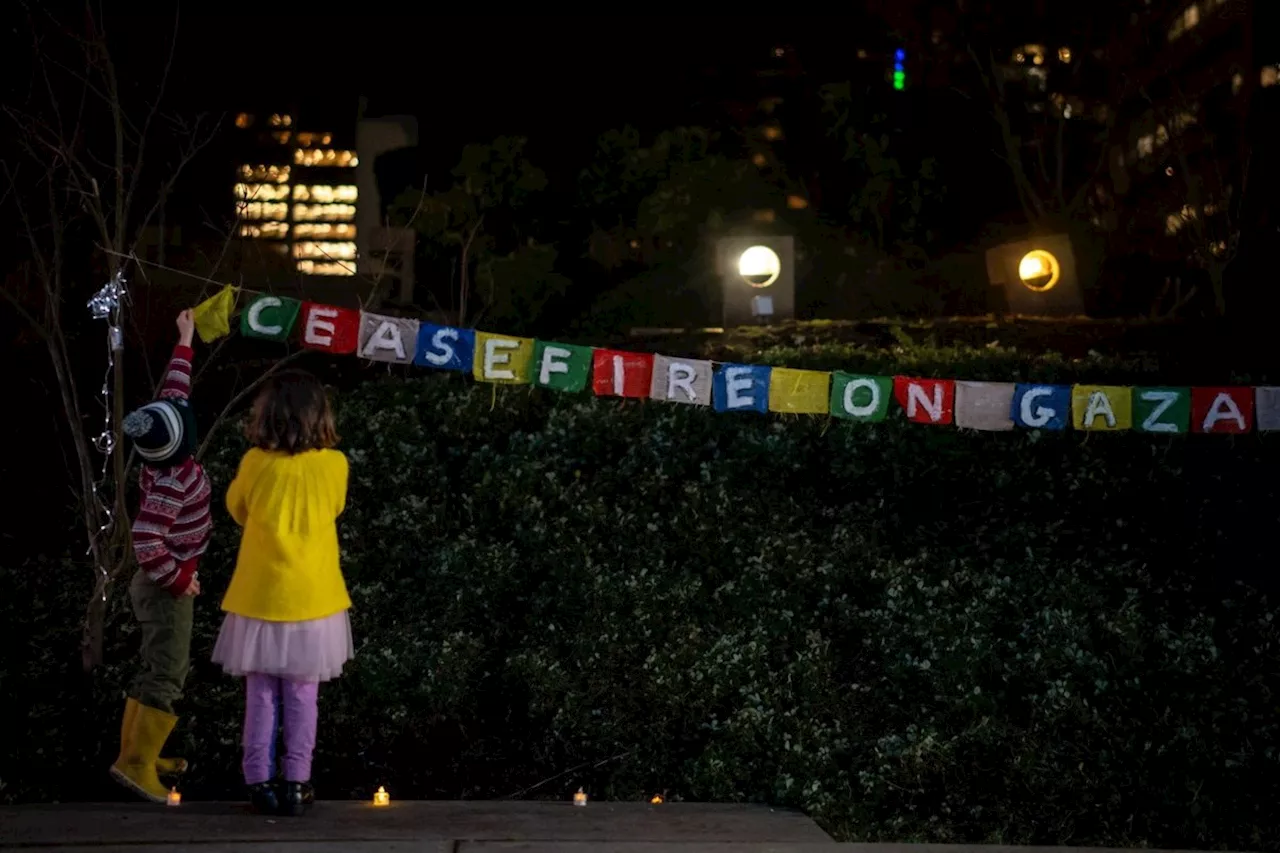 Tears of Joy as Israel and Hamas Agree to Ceasefire Ending 15-Month Gaza WarA ceasefire deal has been reached between Israel and Hamas, ending the 15-month-long conflict in Gaza that has claimed tens of thousands of lives and displaced hundreds of thousands more. The agreement, brokered by mediators, includes the release of hostages held by both sides and the flow of humanitarian aid into Gaza. While the ceasefire is welcomed by many, protests are expected to continue as calls for justice and accountability grow.
Tears of Joy as Israel and Hamas Agree to Ceasefire Ending 15-Month Gaza WarA ceasefire deal has been reached between Israel and Hamas, ending the 15-month-long conflict in Gaza that has claimed tens of thousands of lives and displaced hundreds of thousands more. The agreement, brokered by mediators, includes the release of hostages held by both sides and the flow of humanitarian aid into Gaza. While the ceasefire is welcomed by many, protests are expected to continue as calls for justice and accountability grow.
Read more »
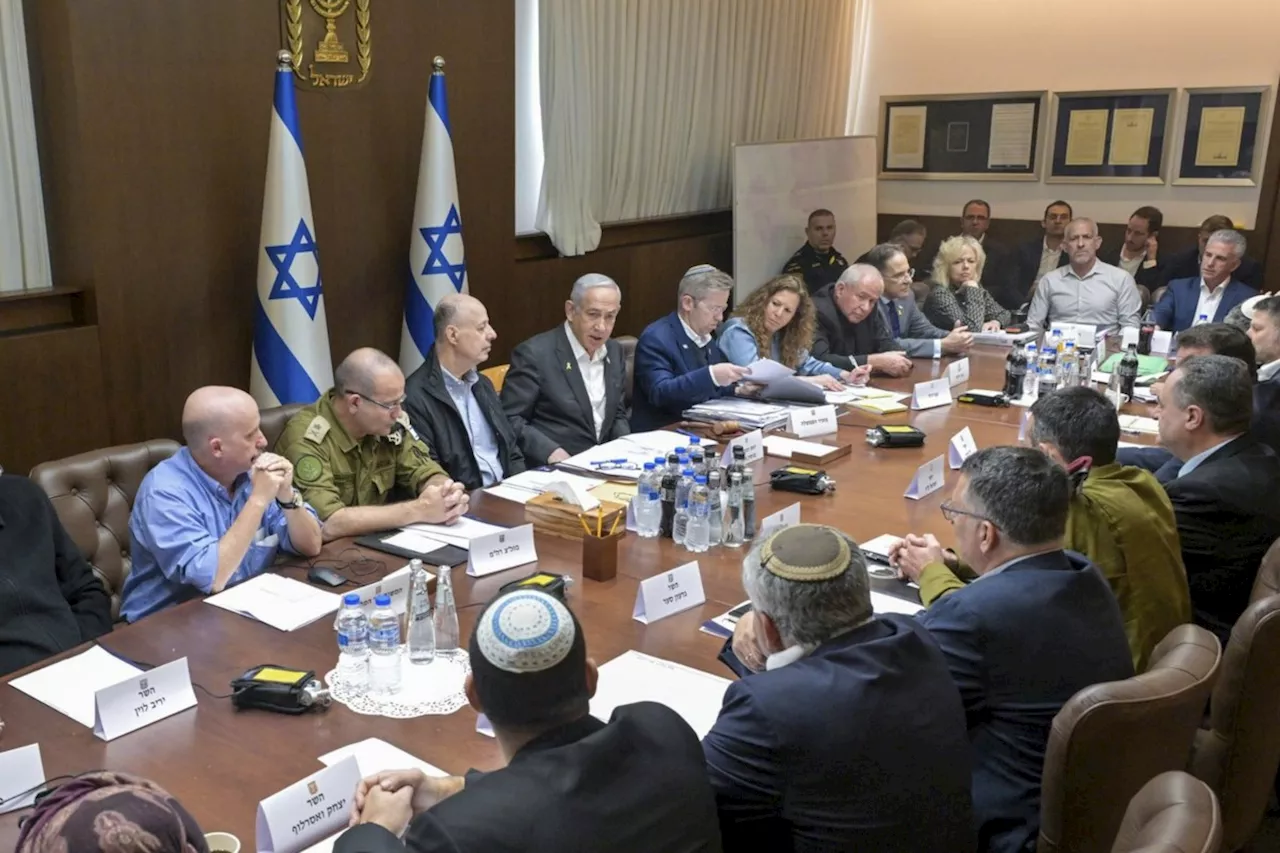 Israel and Hamas Agree to Ceasefire in Gaza, Ending 15-Month WarAfter a grueling 15-month war, Israel and Hamas have agreed to a ceasefire, marking a significant step towards ending the deadliest conflict in their history. Dozens of hostages will be released, and fighting will pause, but the long-term future of Gaza remains uncertain.
Israel and Hamas Agree to Ceasefire in Gaza, Ending 15-Month WarAfter a grueling 15-month war, Israel and Hamas have agreed to a ceasefire, marking a significant step towards ending the deadliest conflict in their history. Dozens of hostages will be released, and fighting will pause, but the long-term future of Gaza remains uncertain.
Read more »
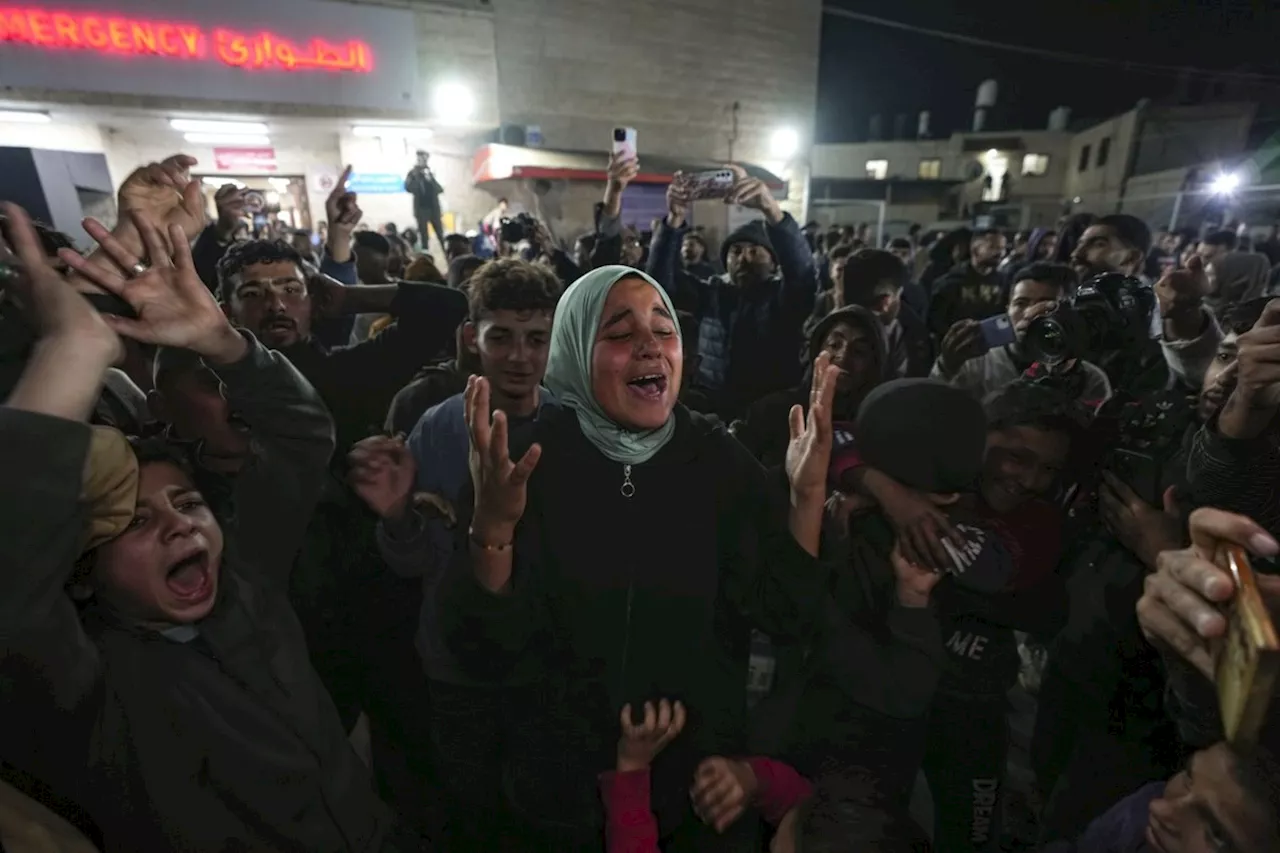 Israel and Hamas Agree to Ceasefire in GazaAfter 15 months of devastating war, Israel and Hamas have agreed to a ceasefire, raising hopes for a potential end to the conflict. Dozens of Israeli hostages held by Hamas are expected to be released and hundreds of thousands of displaced Palestinians will be allowed to return home.
Israel and Hamas Agree to Ceasefire in GazaAfter 15 months of devastating war, Israel and Hamas have agreed to a ceasefire, raising hopes for a potential end to the conflict. Dozens of Israeli hostages held by Hamas are expected to be released and hundreds of thousands of displaced Palestinians will be allowed to return home.
Read more »
 Israel and Hamas Agree to Ceasefire in Gaza WarAfter 15 months of devastating conflict, Israel and Hamas have reached a ceasefire agreement, raising hopes for a potential end to the war. The deal includes the phased release of hostages, Palestinian prisoners, and the return of displaced Palestinians to their homes.
Israel and Hamas Agree to Ceasefire in Gaza WarAfter 15 months of devastating conflict, Israel and Hamas have reached a ceasefire agreement, raising hopes for a potential end to the war. The deal includes the phased release of hostages, Palestinian prisoners, and the return of displaced Palestinians to their homes.
Read more »
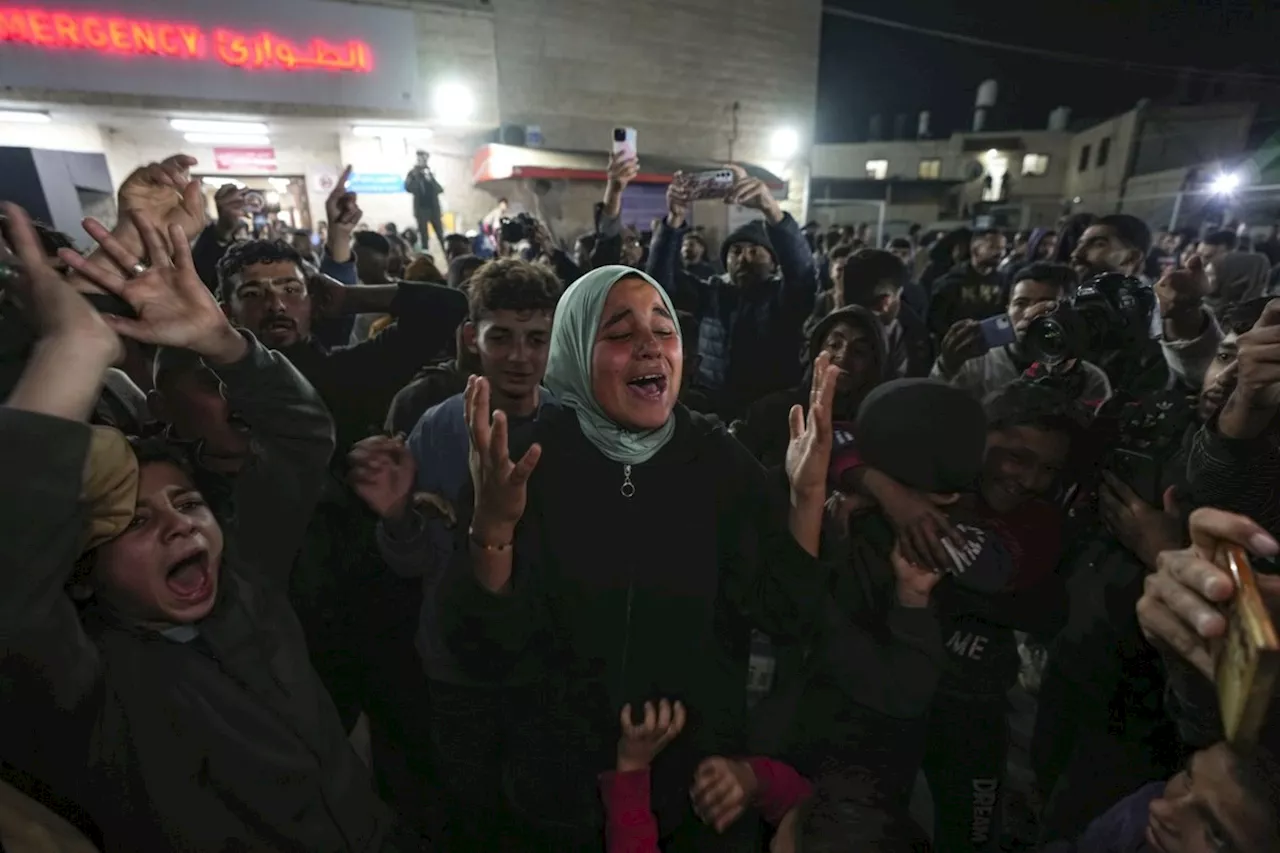 Israel and Hamas Agree to Ceasefire in GazaA three-phase ceasefire agreement has been reached between Israel and Hamas, potentially ending the deadliest conflict in the region. The deal includes the release of hostages held by Hamas, the return of displaced Palestinians to Gaza, and the influx of humanitarian aid. The ceasefire is expected to take effect on Sunday, with negotiations for a long-term truce to follow.
Israel and Hamas Agree to Ceasefire in GazaA three-phase ceasefire agreement has been reached between Israel and Hamas, potentially ending the deadliest conflict in the region. The deal includes the release of hostages held by Hamas, the return of displaced Palestinians to Gaza, and the influx of humanitarian aid. The ceasefire is expected to take effect on Sunday, with negotiations for a long-term truce to follow.
Read more »
